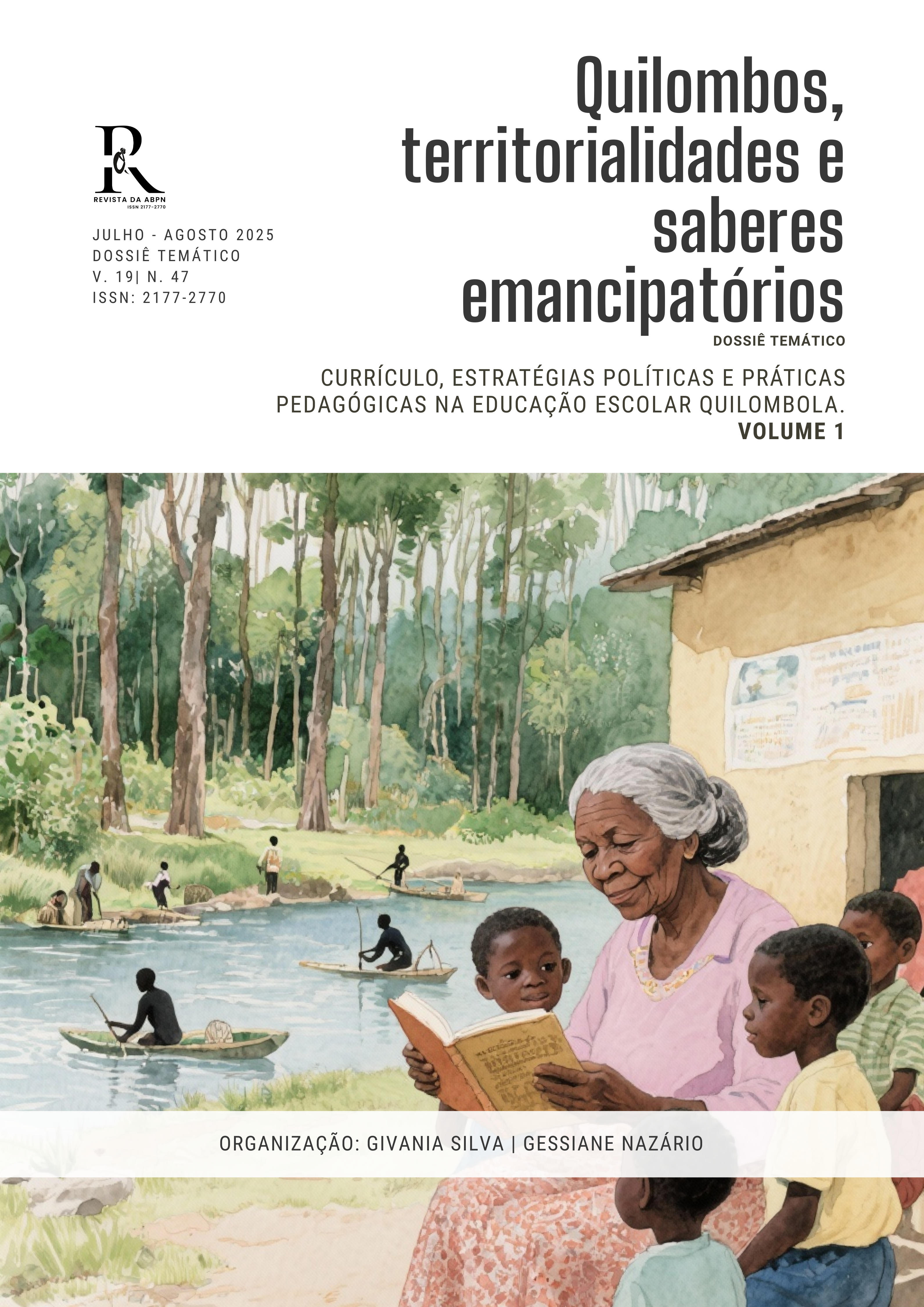RELIGIÃO E EDUCAÇÃO BREVE ANÁLISE DA IMPLEMENTAÇÃO DO CURRÍCULO ESCOLAR QUILOMBOLA NA ESCOLA GRAÚNA
Main Article Content
Abstract
With this text, we propose to show the challenges of implementing the quilombola school curriculum in a state public school located in a territory with quilombo remnants located in the municipality of Itapemirim, south of the State of Espírito Santo. The aim is to analyze the impacts of religion on the implementation of a specific curriculum for the quilombola modality in a school that, for years, used the common national curriculum to construct its pedagogical practices. Given that the school in question is part of the quilombola scenario, it is understood the need to have its methodological practices and philosophies differentiated with the implementation of a curriculum that meets the demands of the Curriculum of the State of Espírito Santo, but that also preserves the specificities of the community in order to rescue their ancestries, collective memories, their cultural practices, celebrations and belonging to the territory. We will seek to analyze the difficulties, challenges and possibilities of implementing the New Quilombola Curricular Organization when it enters into dialogue with existing religions in the school community.
Article Details

This work is licensed under a Creative Commons Attribution 4.0 International License.
Copyright Statement
- Authors retain copyright and grant the journal the right of first publication, with work simultaneously licensed under the Creative Commons Attribution License CC-BY 4.0 which allows the sharing of the work with acknowledgment of the authorship of the work and initial publication in this journal.
- Authors are authorized to enter into additional contracts separately for non-exclusive distribution of the version of the work published in this journal (eg, publishing in institutional repository or book chapter), with acknowledgment of authorship and initial publication in this journal.
- Authors are allowed and encouraged to post and distribute their work online (eg in institutional repositories or on their personal page) at any point before or during the editorial process, as this may lead to productive changes as well as increase impact and citation of published work (See The Effect of Free Access).

